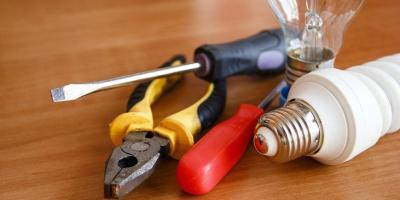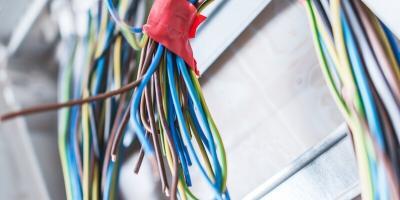Nowadays, electrical systems should pretty much be equipped with all possible precautions available for installation. Dangerous power instances or situations can occur in your home any single time.
Circuit breakers are standard devices that should be installed along with your electrical systems. As homes nowadays have different power needs and possible safety compromises, this poses a danger not only to your property but to others as well.
It should be a standard to make homes have circuit breakers attached to each circuit as much as possible. With this, in the event that a circuit overflows in current, the circuit breaker does what it’s supposed to do. These are the purposes of a circuit breaker:
1. Monitor power current of circuits
One of the things a circuit breaker does is monitor power consumption. As it only works when there is a surge of power flow that isn’t typically there, to begin with, a circuit breaker monitors the amount of electricity there is in a circuit. When it senses that a circuit has more than electricity that goes through, it trips and shuts down automatically. This prevents the circuit from functioning and abruptly ends the power flow until you fix it or turn the breaker on.
2. Breaking down power flows
Another purpose of a circuit breaker is it breaks down power in a circuit. When your circuit breaker continually trips or shuts off, it’s breaking down the power entering the circuit to prevent any damage like overheating and short circuits. When there are too many devices or appliances connected to a certain circuit, it will create an unusually large withdrawal of energy for supply. When your breaker constantly trips, it breaks down that supply to prevent danger.
3. Resets for another use
Fuses and circuit breakers provide the same function. However, there is a difference between the two. Fuses are for one-time use and circuit breakers are reusable or resettable for future use again. It may be a bit more pricey than usual, but it definitely is an investment worth having. Safety is the cost you’re paying for. Circuit breakers function again and again as its mechanism involves shutting off the device in the even of overpower.
4. Prevents possible fire
Too much power flow can cause the event of overheating when not monitored. The circuit breaker shuts off when there’s too much power to prevent any damage and incidents of possible overheating that can lead to fires. It is when electrical wires are too loose and are malfunctioning at the same time drawing too much power; this is where the circuit breaker comes into play. It has saved countless homes from fire accidents.
5. Prevents the occurrence of electric shocks
When a circuit has too much power, it can get dangerous to handle any damages, especially if it still hasn’t shut off properly. You might experience electrical shocks when there are anomalies in the circuit. If the circuit breaker shuts down and prevents the power from flowing too much, electric shocks are mitigated. This saves you from getting unexpected shocks in handling your wirings. Apart from keeping your appliances safe, it keeps you safer too.
Conclusion
Safety is the top priority for any home. As a location that is supposed to keep you safe from the world, it is also your responsibility to keep it safe from harm. One of the best ways is to invest in suitable protective measures. This includes circuit breakers for your electrical system. All you need is somebody note-worthy to install it in your home.
Gordon Powers is one of the best electrical service providers for your circuit breaker installation needs. Part of our services is surge protector installations in your property to keep you safe from possible harm. As a team dedicated to serving you and keeping your electrical systems as top-notched as possible, we are here around Sydney 24/7 on standby. You don’t have to worry about any accidental events, and we are only a call away from you.
Call us at (02) 9199 7480 for concerns and enquiries or book an appointment with us here: https://gordonpowers.com.au/appointment/










